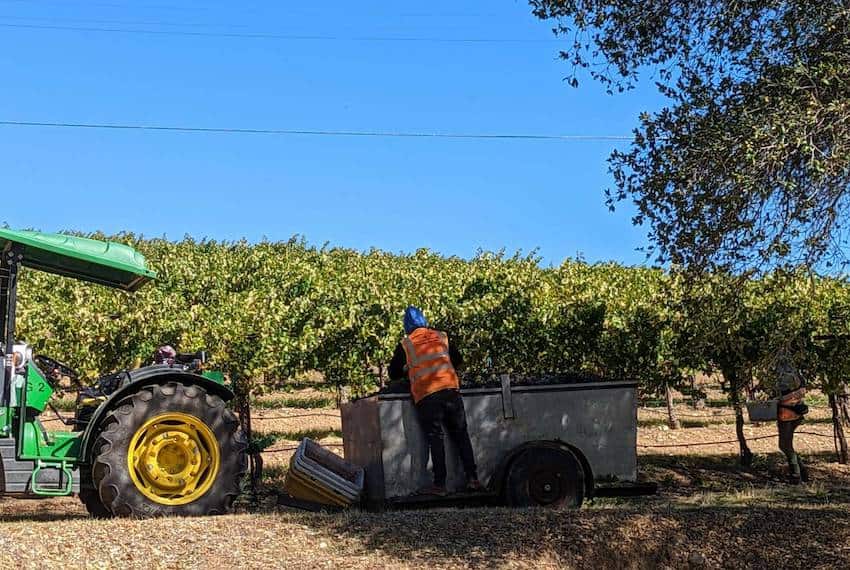Prudencia, exigencia y no violencia.
Those are the words of advice of Tatiana Clouthier to Mexicans in the United States who are protesting or thinking about protesting against immigration raids, such as those recently carried out by Immigration and Customs Enforcement (ICE) in Los Angeles.
Clouthier, economy minister for almost two years in the government of former president Andrés Manuel López Obrador, is now the head of the Institute for Mexicans Abroad (Instituto de Mexicanas y Mexicanos en el Exterior), a federal agency dedicated to supporting Mexicans who live outside Mexico, chiefly the millions of paisanos (compatriots) who live in the United States.
A significant number of those U.S.-based Mexicans are undocumented, making them particularly vulnerable to arrest and deportation as U.S. President Donald Trump pursues what he has said will be the “largest deportation operation in American history.”
After days of (sometimes violent) protest in Los Angeles following the arrest in the city last week of more than 100 undocumented immigrants, Clouthier recalled words spoken by her father, Manuel Clouthier, a candidate in Mexico’s 1988 presidential election.
“When you’re in a crowd [of protesters], any spark that flies ignites,” she recalled her father saying during an interview with Mexico News Daily on Monday.
For that reason, Clouthier said she has long advocated that protesters exercise caution and refrain from committing any acts of violence while expressing their demands in a demonstration. More succinctly, “prudencia, exigencia y no violencia” (prudence, demand and nonviolence).
Clouthier spoke to Mexico News Daily just hours after President Claudia Sheinbaum condemned violence in Los Angeles during the recent protests against immigration raids.

“We call on the Mexican community to act peacefully and not succumb to provocations,” Sheinbaum said at her Monday morning press conference.
Clouthier held up Mexican-American labor leader and civil rights activist César Chávez as a shining example of the nonviolent form of protest she advocates.
With his nonviolent leadership of protests, Chávez “moved rivers of people,” she said.
Asked about criticism of the use of Mexican flags and other foreign flags during the protests in Los Angeles, including from within the Trump administration, Clouthier simply noted that “California was Mexican territory,” and highlighted that when the United States took over the land, it didn’t expel the Mexicans living there.
‘People are afraid, people are scared, people are stressed’
We asked Clouthier what she, as head of the Institute for Mexicans Abroad, has heard about fear among Mexicans in the United States as Trump pushes ahead with what the Associated Press called a “maximalist approach to enforcing immigration laws.”
Fear of going to work due to the risk of arrest and deportation. Fear of going to school. Fear of going to Western Union to send remittances home.
“People are afraid, people are scared, people are stressed, people are reactive,” Clouthier told Mexico News Daily.
Consequently, the prevalence of mental health issues among members of immigrant communities in the U.S. is on the rise, she said.
Sheinbaum urges peaceful protest and due process after 42 Mexicans detained in Los Angeles ICE raids
The U.S. Committee for Refugees and Immigrants said in a paper published earlier this year that “research indicates that restrictive and punitive immigration policies are directly associated with adverse mental health outcomes among undocumented immigrants, including increased rates of depression, anxiety, post-traumatic stress disorder (PTSD) and substance use.”
Another academic paper published by The Conversation in February states that “in hostile political climates, including the current moment in the U.S., immigrants feel the risk of deportation acutely.”
“… This feeling has a chilling effect, discouraging immigrants from the everyday activities they would otherwise do,” the paper says.
Clouthier noted that she recently met with members of the Mexican community in Redwood City, located between San Francisco and San Jose in California.
She said she detected “contained aggression” among the people she spoke to — a result of the current situation in the United States, even though deportation numbers in recent months have not matched Trump’s rhetoric.
The repressed aggression Clouthier spoke about is not always easily contained, as we saw in recent days in Los Angeles, where some protesters engaged in violent acts such as setting vehicles alight and hurling projectiles at authorities. According to California Governor Gavin Newsom, Trump inflamed the situation by deploying the National Guard to quell the protests.
Clouthier said that in addition to fear of going out due to the risk of being detained by ICE, some immigrants are also afraid that the money in their U.S. bank accounts could be seized and as a result are withdrawing their savings and stashing the cash in their homes.
“People are taking money out of banks and putting it under their pillows,” she said.
“… We’ve said that no one has the right to take your money from your bank, but there is fear,” Clouthier said.
‘Every time you eat a strawberry, every time you drink a glass of California wine’
As deportation numbers rise as ICE continues to carry out raids, Clouthier emphasized the importance of Mexican workers — including undocumented ones — to the United States economy.

She referred to remarks made by Democratic Party Congressman Lou Correa, who on Monday released a statement condemning ICE raids in Orange County, which borders Los Angeles County.
“Upon landing in Washington, I was shocked to hear of ICE raids being conducted across Orange County — where it appears agents are picking up hard-working, law-abiding taxpayers. Why?” Correa said in his statement.
“Yesterday, everything was good and boring in Santa Ana. Everyone was going to church and going to the grocery store — it was a beautiful day. Today ICE is coming in to raid and disrupt our neighborhood? These are the parents whose children went to school with my kids. They take care of our elderly, mow our lawns, and are a part of the fourth largest economy in the world. This is inciting fear in our community,” he said.
Clouthier said that “every time you eat a strawberry” in the United States and “every time you drink a glass of California wine,” you should remember the fundamental role of Mexican labor in the cultivation, picking and production of agricultural products in the U.S.
“Every time you eat a hamburger,” she added, before also noting the importance of Mexican labor to the construction industry in the United States.
By Mexico News Daily chief staff writer Peter Davies (peter.davies@mexiconewsdaily.com)
